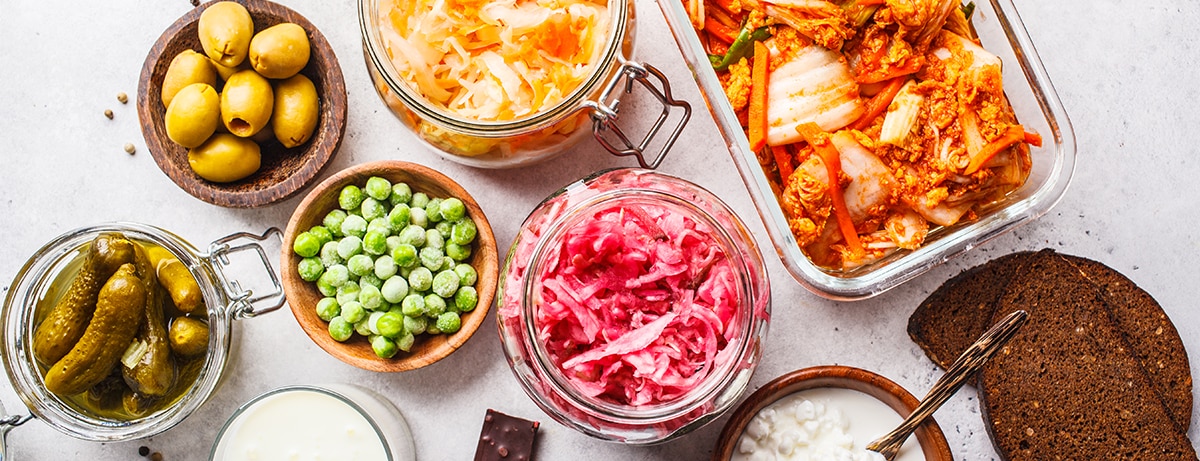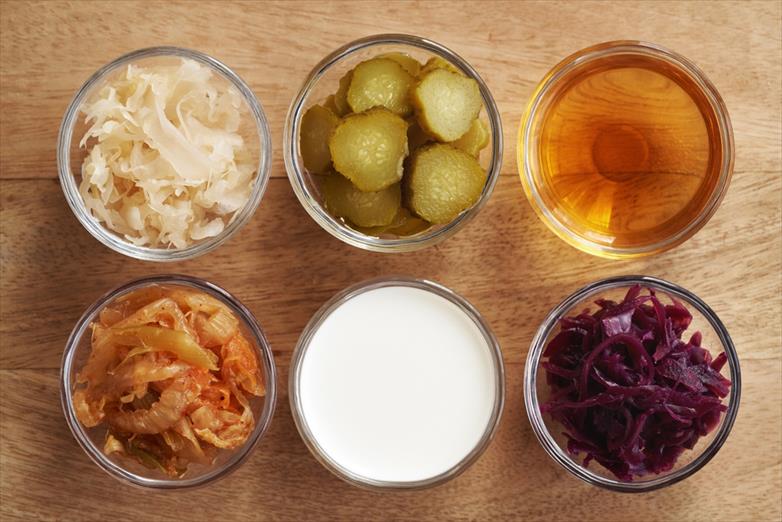Including fermented foods that support gut health in your daily diet is one of the simplest ways to improve digestion and strengthen immunity. Fermentation produces beneficial bacteria, known as probiotics, that restore balance in the gut microbiome. Foods such as yogurt, kimchi, sauerkraut, kefir, and miso are rich in probiotics and enzymes that ease digestion and reduce inflammation. These gut-friendly foods not only improve nutrient absorption but also support mental clarity and energy. Choosing a variety of fermented foods for digestion ensures your body receives diverse bacterial strains that promote long-term wellness. Let’s explore the best natural options for a healthier gut.

Why Fermented Foods Matter for Gut Health
Fermentation is a natural process that enhances both flavor and nutrition. Eating fermented foods for gut health provides live cultures that help good bacteria thrive. A balanced gut microbiome improves digestion, reduces bloating, and supports the immune system. Unlike processed foods, probiotic-rich foods work with your body to restore balance and prevent harmful bacteria from dominating. Regular intake of fermented foods also increases nutrient availability, making vitamins and minerals easier to absorb. This makes them powerful natural remedies for gut health. By understanding their benefits, you can make smarter food choices that improve both short-term comfort and long-term digestive strength.
Yogurt and Kefir: Creamy Probiotic Foods
Yogurt and kefir are popular fermented foods packed with probiotics. Yogurt contains live bacterial cultures that ease lactose digestion and reduce gut discomfort. Kefir, a fermented milk drink, offers even more diverse strains of probiotics along with beneficial yeasts, making it especially powerful for restoring gut balance. Both foods also provide protein and calcium, which support overall health. Adding yogurt to breakfast bowls with fruit or blending kefir into smoothies is an easy way to enjoy these gut-healing foods daily. Their creamy texture and mild flavor make them versatile. Consistently including yogurt and kefir improves digestion, strengthens the intestinal lining, and enhances overall microbiome health naturally.

Sauerkraut and Kimchi: Fermented Vegetables
Sauerkraut and kimchi are vegetable-based fermented foods that support gut health while also providing fiber and antioxidants. Sauerkraut, made from cabbage, contains probiotics that ease digestion and reduce bloating. Kimchi, a spicy Korean dish, combines cabbage, radishes, garlic, and chili for both probiotic and anti-inflammatory benefits. These fermented vegetables not only improve gut flora but also supply vitamins C and K for immune and bone health. Adding a spoonful of sauerkraut as a side dish or using kimchi in stir-fries makes it simple to include them in meals. Their tangy flavor and crunch bring both taste and powerful gut-friendly benefits.
Miso and Tempeh: Plant-Based Fermented Foods
For those who prefer plant-based options, miso and tempeh are excellent choices. Miso, a traditional Japanese paste made from fermented soybeans, adds probiotics and umami flavor to soups and marinades. Tempeh, a fermented soybean cake, offers probiotics along with protein, making it ideal for vegetarians and vegans. These fermented foods for digestion also provide essential minerals such as magnesium and iron. A warm miso soup before meals supports digestion, while tempeh can be grilled or added to salads as a hearty protein source. By including these plant-based probiotic foods, you not only improve gut health but also gain versatile, nutrient-dense meal options.

Tips for Adding Fermented Foods Daily
Incorporating fermented foods that support gut health into your daily routine doesn’t have to be complicated. Start small by adding yogurt to breakfast, kimchi to lunch, and miso soup at dinner. Rotate different probiotic foods to ensure a diverse range of bacteria. Always choose minimally processed options with live cultures for the best results. Pairing fermented foods with fiber-rich fruits and vegetables enhances their effectiveness by giving good bacteria fuel to grow. Consistency is key—make them a regular part of your diet rather than an occasional choice. These habits create a stronger gut, smoother digestion, and lasting overall wellness.
